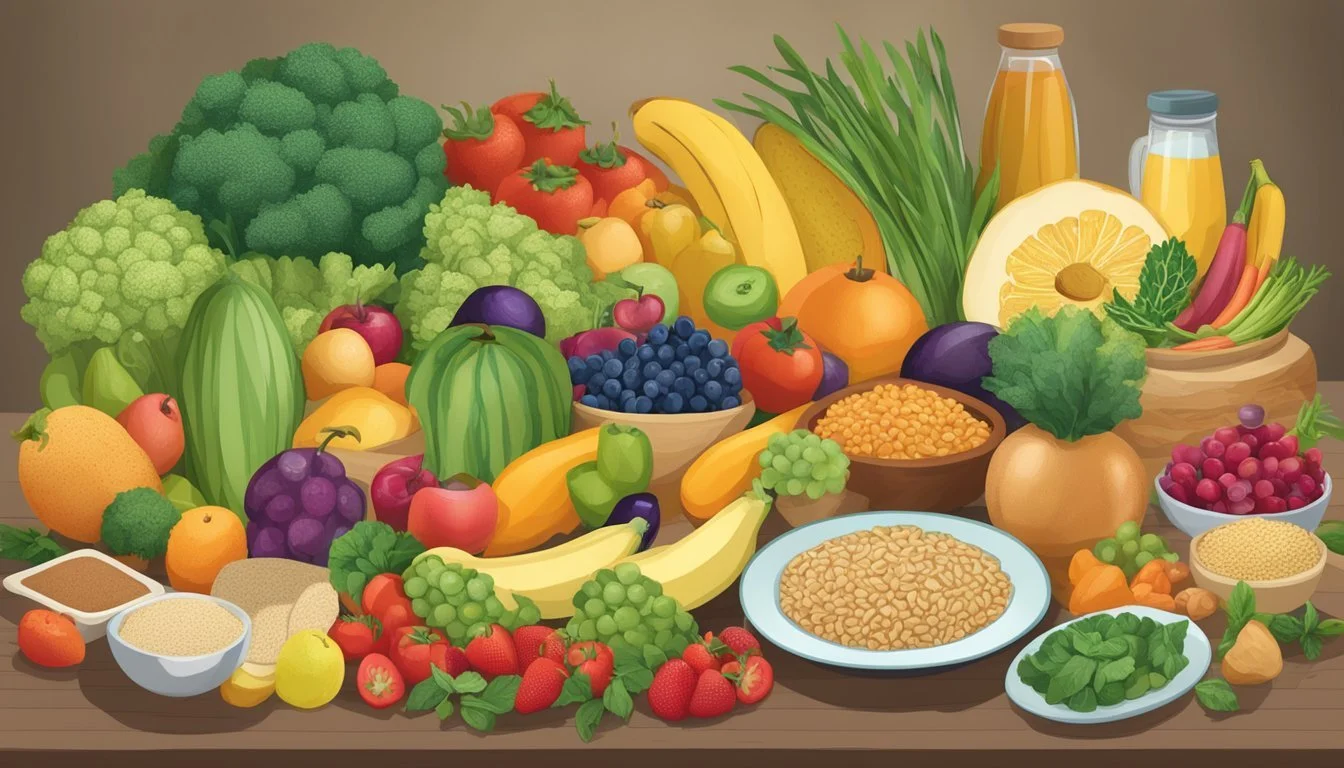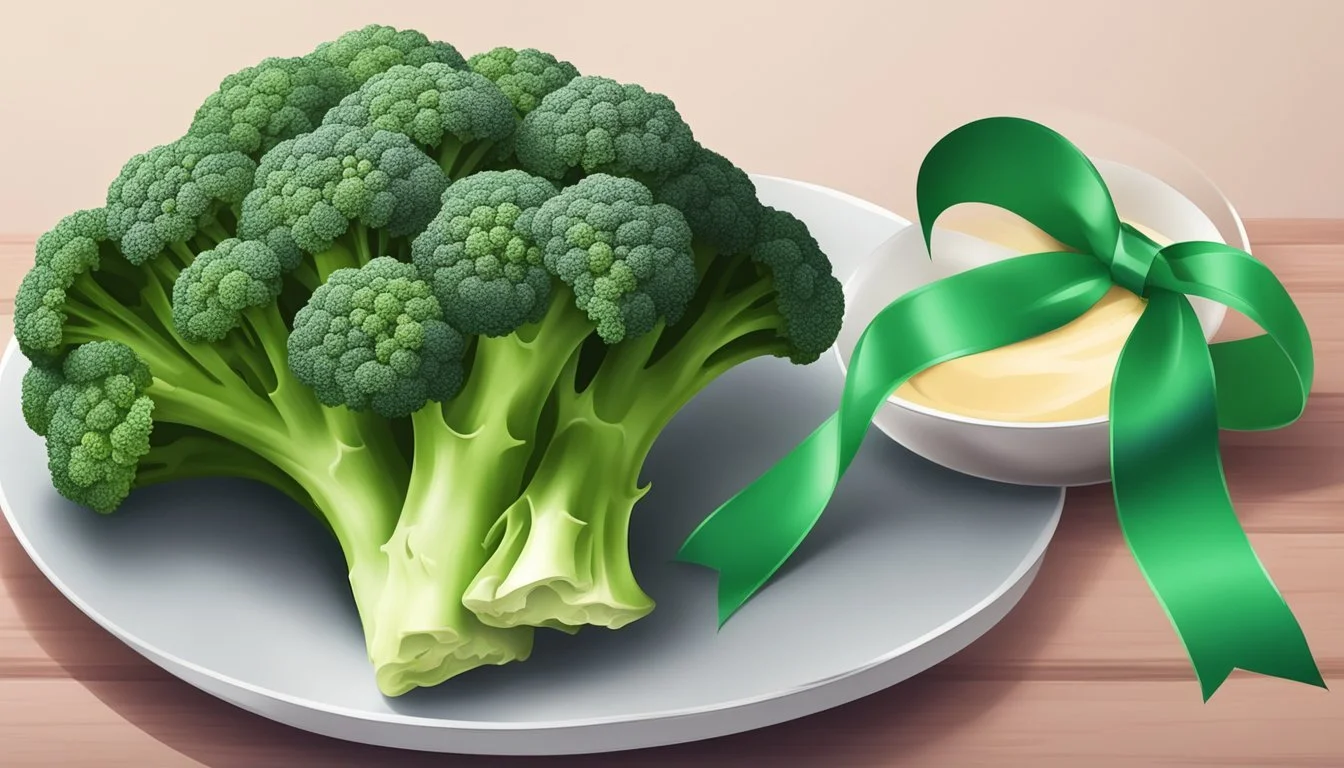Nourishing Foods to Support Cancer Patients During Treatment
Nutrition plays a crucial role in the journey of cancer patients, aiding not only in treatment but also in recovery and overall well-being. Understanding which foods to consume and which to avoid can significantly impact the effectiveness of cancer treatment and the quality of life for those undergoing it.
Dietary choices may influence how patients feel and perform during various phases of their treatment. With the right guidance and information, patients can choose foods that provide essential nutrients and promote healing, while managing side effects of the treatment effectively.
1) Turmeric
Turmeric, a spice often used in Asian cuisine, has garnered attention for its potential health benefits, particularly in cancer care. The key active compound in turmeric, curcumin, has been studied for its anti-inflammatory and antioxidant properties.
Some studies suggest that curcumin may help fight cancer cells. Laboratory research indicates curcumin might work against several types of cancer, including lung and breast cancer.
Incorporating turmeric into the diet is straightforward. It can be added to curries, soups, and stir-fries, providing a vibrant color and earthy flavor. Another popular option is golden milk, a warm beverage made with turmeric and spices.
While turmeric shows promise, it is important to consult with healthcare providers before starting supplements or high doses, especially for those undergoing cancer treatment.
2) Green Tea
Green tea contains various compounds believed to offer health benefits. Among them is epigallocatechin gallate (EGCG), a potent antioxidant that may provide protective effects against certain types of cancer.
Studies on green tea and cancer have yielded mixed results. Some research indicates that green tea may reduce the risk of lung and prostate cancer in men.
The antioxidant properties of green tea can also help alleviate side effects from cancer treatments. For example, topical EGCG may relieve radiation-induced dermatitis in breast cancer patients.
While green tea is generally considered safe in moderate amounts, it is crucial for patients to consult with healthcare providers before using green tea supplements.
Research is still ongoing, and though green tea shows promise, it is not a cure for cancer. Including green tea as part of a healthy, plant-based diet could be beneficial, but it should not replace conventional cancer treatments.
3) Blueberries
Blueberries are widely acknowledged for their health benefits, particularly for cancer patients. They contain powerful antioxidants, such as anthocyanins, which help protect cells from oxidative stress and inflammation.
Studies suggest that anthocyanins in blueberries can enhance the body's defense mechanisms against cancer. These compounds influence cell signaling and gene expression, potentially decreasing cancer cell growth.
Another significant component of blueberries is phenolic acids. These acids boost antioxidant and anti-inflammatory defenses, offering additional protection to the body's cells.
Research also indicates that blueberries help improve the effectiveness of cancer treatments. For example, certain compounds in blueberries may sensitize cancer cells to radiation therapy, making treatments more effective.
Including blueberries in the diet of cancer patients could also support cognitive functions. These berries have been linked to benefits in memory and concentration, which are often affected during and after cancer treatment.
Incorporating blueberries into daily meals is easy. They can be added to smoothies, salads, or simply consumed as a snack. Given their potential benefits, blueberries are a valuable addition to the diets of those undergoing cancer treatment.
4) Broccoli
Broccoli is a cruciferous vegetable known for its potential health benefits, particularly in cancer prevention. It contains high levels of sulforaphane, a powerful phytochemical. Sulforaphane is formed from glucosinolates, which have been shown to inhibit the development and progression of various cancers.
Research suggests that regular consumption of broccoli may help lower the risk of certain cancers. Lab studies have demonstrated its effectiveness against prostate cancer. Additionally, limited human trials support broccoli's role in cancer prevention.
Broccoli also provides essential nutrients such as vitamins C, K, and A, as well as fiber. These nutrients contribute to overall health and bolster the immune system, which is crucial for cancer patients. Including broccoli in a balanced diet may aid in maintaining strength and well-being.
Incorporating broccoli into meals can be simple and versatile. It can be steamed, roasted, or added to soups and salads, making it easy to increase its intake. For those who may not enjoy its taste, blending it in smoothies with other fruits and vegetables can be a palatable alternative.
5) Garlic
Garlic, derived from the bulb or clove of the plant, is praised for its various health benefits. It is believed to lower cholesterol, support cardiovascular health, and exhibit antioxidant properties. These characteristics make garlic a noteworthy addition to the diets of cancer patients.
Certain compounds in garlic, such as allicin, have shown potential in reducing cancer risk. Crushing or chopping garlic and letting it sit for about 10 minutes allows the enzyme alliinase to produce allicin, enhancing its beneficial effects.
Garlic also contains several bioactive compounds with antimicrobial and anti-inflammatory properties. These compounds may help strengthen the immune system, which is crucial for individuals undergoing cancer treatment.
Consuming garlic in its raw form seems to preserve its anti-cancer properties more effectively than cooking it. However, garlic powder may still provide some benefits, though possibly to a lesser extent.
Adding garlic to meals can be simple. It can be included in various dishes such as salads, soups, and sauces. This makes it easy for cancer patients to incorporate this beneficial food into their daily diet.
6) Tomatoes
Tomatoes are a versatile and nutritious addition to the diet, particularly for cancer patients. They are rich in vitamins, minerals, and antioxidants.
One of the key components in tomatoes is lycopene. Lycopene is a powerful antioxidant with potential cancer-fighting properties. Cooking tomatoes can increase the bioavailability of lycopene, making it easier for the body to absorb.
Tomatoes can help decrease the risk of certain types of cancer. Research indicates that a diet rich in non-starchy vegetables, which includes tomatoes, may reduce the risk of mouth, pharynx, larynx, esophagus, lung, stomach, and colorectal cancers.
Incorporating tomatoes into daily meals is straightforward. They can be added to salads, soups, and sauces. Drizzling olive oil on cooked tomatoes can further enhance lycopene absorption.
Recent studies have shown mixed results regarding tomatoes' effect on prostate cancer. While some evidence is promising, additional research is needed for definitive conclusions.
Adding tomatoes to the diet can offer health benefits beyond cancer prevention. Their high content of vitamins A and C supports immune function, which is essential during cancer treatment.
7) Carrots
Carrots are a non-starchy vegetable rich in nutrients beneficial for cancer patients. They are known for their high content of carotenoids, particularly beta-carotene, which has been researched for its potential cancer-fighting properties.
Carrots also contain other important phytochemicals such as falcarinol and luteolin. These compounds can help reawaken silenced cancer suppressor genes and aid in regulating cell division.
Eating carrots can provide a significant amount of vitamin A, fiber, and vitamin K. One medium-sized carrot contains about 200% of the daily recommended amount of vitamin A and 2 grams of fiber.
Carrot juice therapy has been suggested as a complementary treatment alongside traditional cancer therapies like chemotherapy and radiation. Some research indicates it could enhance the body's ability to combat cancer.
For cancer prevention and management, incorporating carrots into meals is a nutritious option. They can be consumed raw, juiced, or cooked, making them versatile in various dishes.
Adding carrots to the diet is a practical way to boost overall health, providing essential nutrients and potentially aiding in cancer prevention and treatment.
8) Spinach
Spinach is a nutrient-dense leafy green vegetable often highlighted for its potential health benefits. It is rich in vitamins A, C, and K, as well as minerals like iron and magnesium. These nutrients are essential for maintaining overall health, especially for cancer patients undergoing treatment.
Recent studies have suggested that spinach may help reduce the risk of certain cancers. Research from Texas A&M indicates that a diet high in spinach could significantly lower the formation of colon tumors. This is potentially due to the complex interactions between spinach, gut health, and specific genes related to colon cancer.
In an animal model of familial adenomatous polyposis, freeze-dried spinach was shown to have notable antitumor activity. This suggests that spinach might aid in cancer prevention by delaying the need for more invasive treatments.
Incorporating spinach into a cancer patient's diet can provide a natural source of fiber, which supports digestive health. It also contains antioxidants, which help combat oxidative stress, a factor in cancer development. Consuming spinach in various forms, such as fresh, cooked, or blended into smoothies, can be both beneficial and versatile.
9) Walnuts
Walnuts are a powerful addition to a cancer-preventive diet. They are packed with nutrients, including omega-3 fatty acids, antioxidants, and phytosterols, which contribute to their health benefits.
Research suggests that walnuts can help suppress cancer cell growth. In studies comparing different nuts, walnuts have shown significant effectiveness in reducing cell proliferation.
Toasting walnuts enhances their flavor. For small batches, toast walnut halves in a dry skillet over medium heat for 2-3 minutes, or until golden brown. For larger quantities, bake walnut halves in a shallow pan at 350 degrees Fahrenheit for 5-10 minutes.
Incorporating walnuts into daily meals is easy. Sprinkle them on salads, yogurt, or oatmeal. They can also be blended into smoothies or used in baking for added nutrition.
Regular consumption of walnuts may reduce the risk of several cancers, including colon, endometrial, and pancreatic cancer. This makes walnuts not only a tasty snack but also a beneficial food choice for cancer patients.
Eating an ounce of walnuts daily can have positive effects on health, contributing to both cancer prevention and overall well-being.
10) Flaxseeds
Flaxseeds are small, but they pack a significant nutritional punch. They are known for their high content of phytoestrogens and alpha-linolenic acid, which play a role in supporting overall health.
For cancer patients, flaxseeds offer potential benefits. Studies suggest that the lignans in flaxseeds may help in reducing systemic inflammation, which is crucial for cancer management.
The fiber in flaxseeds aids in maintaining a healthy digestive system, which can be particularly important for those undergoing cancer treatments. Digestive health is often compromised during such treatments, and the fiber can help alleviate some related issues.
Incorporating flaxseeds into a diet can be simple. They can be added to smoothies, cereals, or baked goods. Regular consumption may support better health outcomes and improve quality of life for cancer patients.
Early research shows mixed results, and more human studies are required. Yet, the existing evidence indicates that flaxseeds are a valuable addition to a cancer-fighting diet due to their promising health benefits.
Flaxseed oil, derived from flaxseeds, might also help. It has shown potential in reducing inflammatory markers, providing additional support for cancer patients dealing with inflammation.
The Role of Nutrition in Cancer Treatment
Proper nutrition is vital for supporting patients throughout cancer treatment. It can enhance their strength, improve treatment tolerance, and aid in faster recovery.
Importance of a Balanced Diet
Eating a balanced diet helps cancer patients maintain energy levels and manage symptoms. A diverse array of foods ensures they receive essential nutrients like proteins, vitamins, and minerals. Nutrient-rich foods can help combat fatigue and support the body's recovery process.
Protein is crucial for rebuilding tissues and maintaining muscle mass. Sources include lean meats, legumes, and plant-based proteins.
Vitamins and minerals from fruits and vegetables are necessary for immune function and overall health.
This balanced approach helps patients stay resilient against the wear and tear of treatments.
Impact on Immune System
A strong immune system is essential for fighting infections, especially during cancer treatments. Nutrients such as vitamin C, zinc, and antioxidants play a significant role in supporting immune health.
Vitamin C found in citrus fruits boosts immunity and aids in healing.
Zinc from nuts and seeds is essential for immune function and wound healing.
Antioxidants present in berries and green vegetables help protect cells from damage.
Proper nutrition can potentially reduce the risk of infections, helping patients withstand the side effects of treatments better. This makes focusing on immune-supportive foods a key component of cancer care.
Common Nutritional Challenges Facing Cancer Patients
Cancer patients often face complex nutritional issues that can significantly impact their health and treatment outcomes. These challenges include loss of appetite, taste changes, and difficulty swallowing.
Loss of Appetite
Loss of appetite, or anorexia, is a common issue among cancer patients. This can be due to the cancer itself, treatments like chemotherapy and radiation, or medications. Reduced desire to eat can lead to malnutrition, making it harder for the body to cope with treatment and recover.
Regularly scheduled meals and snacks, even when not hungry, can help maintain calorie intake. Nutrient-dense foods like smoothies and high-calorie shakes are recommended.
Taste Changes
Taste changes can make it difficult for cancer patients to enjoy food. Chemotherapy, radiation, and certain medications can alter taste buds, causing a metallic taste or making foods taste bland or different.
To mitigate this, patients can experiment with tart flavors, use herbs and spices, and avoid using metal utensils if experiencing a metallic taste. Maintaining proper oral hygiene can also help manage these changes.
Difficulty Swallowing
Difficulty swallowing, or dysphagia, is another significant challenge. This can occur due to the cancer itself, treatments, or from a weakened immune system leading to infections in the mouth or throat.
Soft, moist foods that are easier to swallow, such as soups and purees, are beneficial. Avoiding hard, dry, or sticky foods can prevent discomfort. Consulting with a speech or swallowing therapist may provide additional strategies to manage this issue effectively.
Supportive Dietary Practices
Effective dietary strategies can significantly aid cancer patients by managing treatment side effects and ensuring adequate hydration. Below are detailed practices focusing on these essential aspects.
Managing Side Effects Through Diet
Chemotherapy and other treatments often lead to side effects like nausea, taste changes, and loss of appetite. Incorporating plant-based proteins such as beans, legumes, and nuts provides essential nutrients and is easier on the stomach.
Heavily spiced or acidic foods like pickles and lemons may help counteract taste changes. Alternating strong flavors with high-protein foods can help make meals more palatable. Patients experiencing appetite loss can benefit from small, frequent meals that are nutrient-dense and appealing in flavor.
Hydration Strategies
Adequate hydration is critical during cancer treatment. It helps to manage common side effects such as dry mouth and constipation. Adding lemon to water can enhance flavor and encourage fluid intake.
For those struggling with solid foods, broths and soups are excellent alternatives, providing hydration and nutrients simultaneously. Electrolyte solutions can also be beneficial, especially if the patient experiences significant fluid loss due to vomiting or diarrhea.




